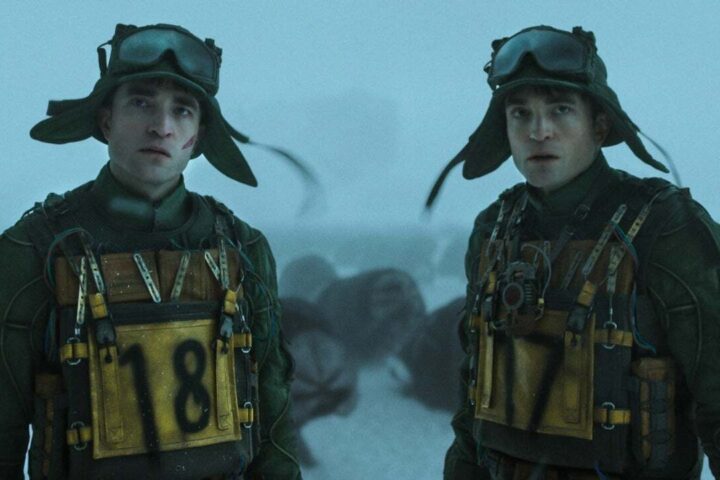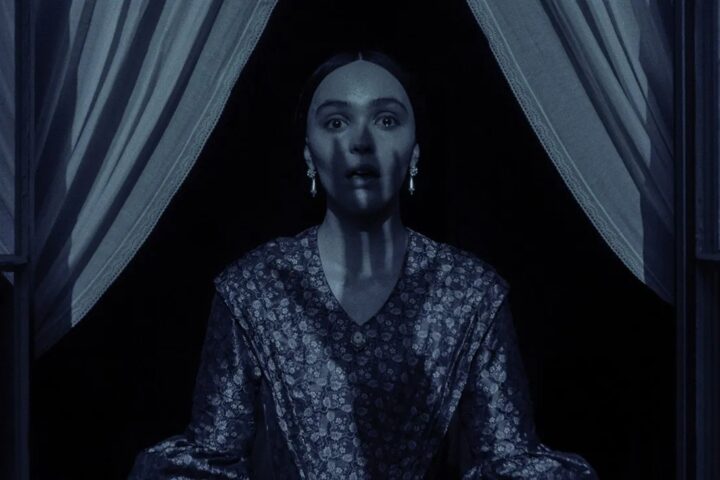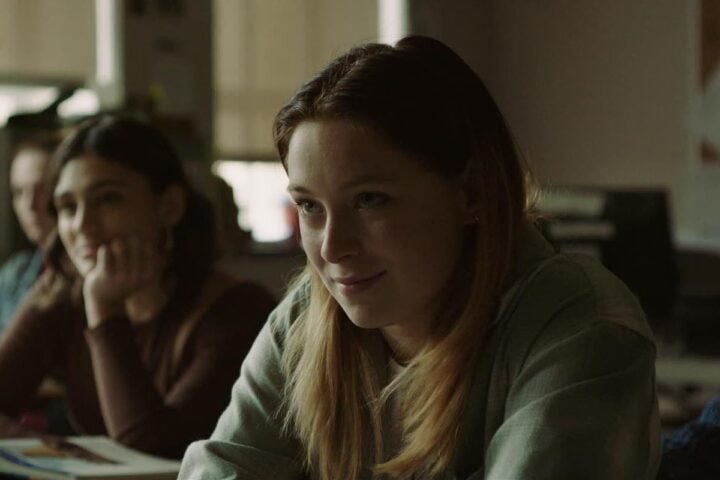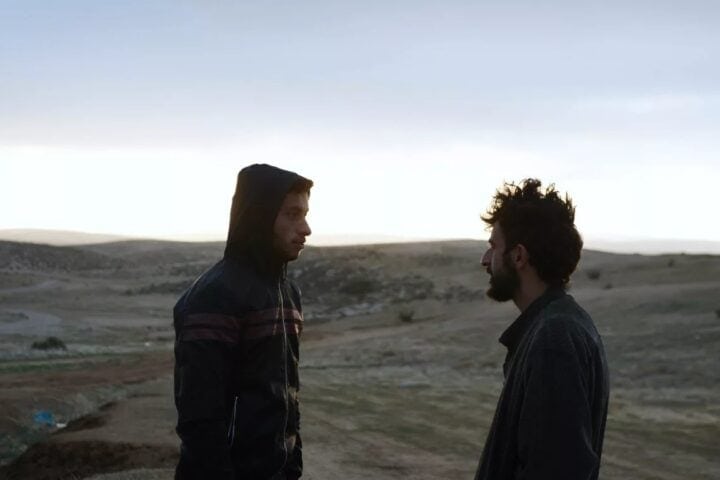Clint Eastwood understands America as an imperfect but noble project, its levers of power flawed but pulled toward justice and honor. If Juror #2 is indeed his last film behind the camera, its focus on truth and justice alone makes it a fitting one. So clearly influenced by Eastwood’s contrarian streak, it can feel more than a little naïve at times, sometimes even inscrutable, but the tautness with which this pulpy, tense, and undeniably curious legal drama has been crafted makes it easy to overlook its often preposterous plotting.
A recovering alcoholic and lifestyle magazine writer with an expectant wife at home, Justin Kemp (Nicholas Hoult) is selected to serve on the jury for the murder trial of a man accused of beating his girlfriend and dumping her body in a roadside gulch—a crime that he comes to believe is actually a hit and run committed by himself. In both dialogue and story structure, Jonathan Abrams’s script is marked by a populist mindset, like that of a page-turning airport novel, which is to say that as exciting as it is, Juror #2 is stubbornly defined by its contrivances.
The state of Georgia’s case against James Sythe (Gabriel Basso) would appear to be open and shut, as he was witnessed screaming at his girlfriend, Kendall (Francesca Eastwood), and flinging a beer bottle off the table they were sitting at while drinking at a riverside bar. Representing Sythe is Erik Resnick (Chris Messina), who seems convinced of his client’s innocence but who must go toe to toe with State Prosecutor Faith Killibrew (Toni Collette), a fierce attorney who happens to be running for district attorney on a tough-on-crime campaign.
As the case rolls on, Justin starts to realize that he was at the bar on the same night that Kendall was allegedly murdered, and that he may not have hit a deer, as he believed at the time. Sober and devoted to his AA program, our tormented protagonist first goes to his sponsor, Larry Lasker (Kiefer Sutherland), who happens to be a lawyer, and who tells Justin that no amount of good intentions would convince a jury that he himself wasn’t a reckless drunk. So Justin does the next best thing: He sets out to convince his peers that Sythe is an innocent man.
The first act of Juror #2 plays out as a spin on Rashomon, as it never becomes quite clear what exactly happened on the night of Kendall’s death, with the flashbacks triggered by muddying all sense of absolute truth. For all its preposterousness, this isn’t a film that settles for easy answers. And when the jury retreats to discuss the case, Juror #2 comes to suggest a spin on 12 Angry Men—that is, if Henry Fonda’s humane Juror 8 were secretly the murderer.
The film clips along so well that you find yourself barely considering the believability of certain plot points. Harold (J.K. Simmons) is at first the only other juror who wants to acquit the defendant and reveals himself to be a retired veteran detective, which you think would have come up during the vetting process, and as such disqualified him from serving on this jury. Messina’s Resnick is presented as an extremely capable and adept public defender, but then it seems exceedingly strange that he would miss that piece of information.
As Faith’s faith in her own case begins to crumble (perhaps inevitably, as “faith in justice” is her slick, conservative-sounding slogan of choice), Eastwood’s film leans into a series of convenient and increasingly silly story beats. Elsewhere, even though other characters aren’t without their own problems (Justin’s wife, Zoey Deutch’s Ally, is still reeling from a devastating miscarriage the year prior), they’re more sounding boards than solid persons. How these and other characters seem to exist only to help push the narrative forward gives Juror #2, which is blandly scored and almost defined by its non-specificity, the feel of a Law & Order episode.
Which isn’t to say that the film’s non-specificity isn’t without purpose or force. Juror #2 casts a morally inquiring side-eye at the American legal system, questioning whether it’s reasonable to convict anyone on the basis of something so fallible as memory. Though the film is centered on Justin, its consideration of the precariousness of the American legal system is best exemplified through Faith, who, though steadfast and capable, is hampered by an ambition that blinds her to obvious truths. Through her, we see the courtroom as a place where we must reckon with the image of ourselves as an egalitarian society, and if democracy can even reflect our better selves given how fundamentally constrained we are by our biases and prejudices.
Since 2001, we've brought you uncompromising, candid takes on the world of film, music, television, video games, theater, and more. Independently owned and operated publications like Slant have been hit hard in recent years, but we’re committed to keeping our content free and accessible—meaning no paywalls or fees.
If you like what we do, please consider subscribing to our Patreon or making a donation.






